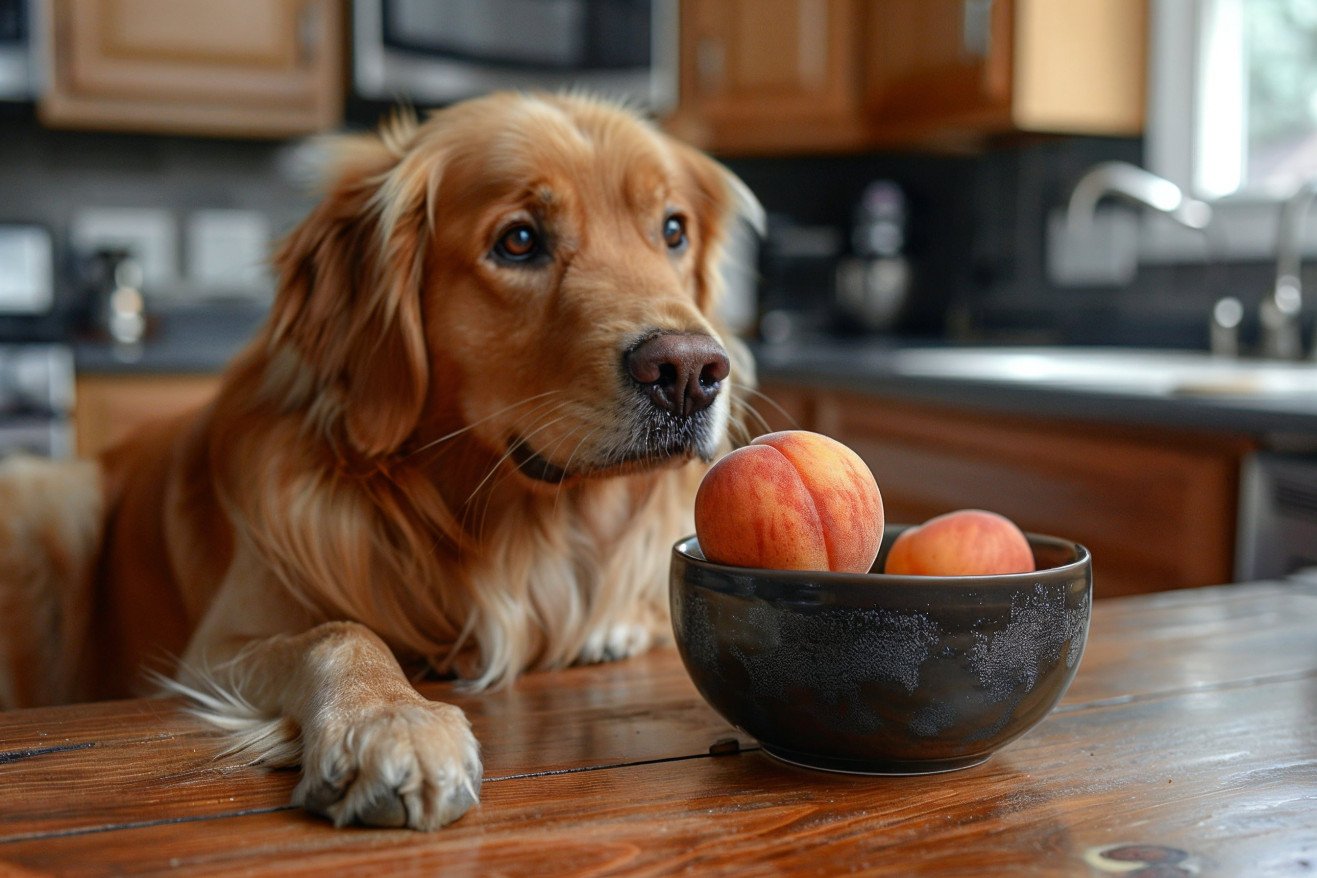Can Dogs Eat Apricots? Healthy Treats for Your Pup
22 February 2024 • Updated 20 February 2024

Apricots are a staple of summer, but can your furry friend enjoy them as a treat? While the flesh of the apricot is full of vitamins and fiber, it can be consumed by dogs in moderation.
On the other hand, the pits, leaves, and stems are poisonous due to the cyanide they contain and should be avoided at all costs. Make sure to always take the pits out of apricots to avoid your dog choking on them and to avoid the possibility of poisoning.
This article will cover everything you need to know about the benefits and risks of apricots in a dog’s diet, including insights from veterinarians and a nutritional breakdown. We’ll discuss how the nutritional properties of apricots can help dogs and take a close look at the risks associated with the toxic properties of apricots.
We’ve referenced a variety of sources, including animal nutritionists and toxicology studies, to make sure we provide a complete picture of the topic so you can decide whether to safely feed your dog this fruit.
Can dogs eat apricots?
Weighing the Pros and Cons: Can Dogs Eat Apricots?
While apricots are a tasty snack for humans, they also have a variety of nutrients that can be good for dogs. According to Verywell Fit, apricots are high in vitamins A, C, and E, and potassium—all of which can help boost your dog’s immune system and improve their digestive health.
Healthline also notes that apricots are low in calories and high in antioxidants, which can help protect cells from damage caused by free radicals and potentially improve your pet’s health.
That said, it’s important to remember that everything should be consumed in moderation. Medical News Today explains that dogs can experience digestive issues if they eat too many apricots because the fruit is high in fiber. This means that it’s important to make sure that you’re not giving your dog too much of a good thing.
In terms of the differences between fresh and dried apricots, it’s important to remember that dried apricots often have added sugars and are more nutrient-dense, according to Verywell Fit. This means that while dried apricots can be a good source of vitamins and minerals, they should be given in small amounts to prevent your dog from consuming too much sugar.
As long as you’re careful about portion control, you can make sure that your dog gets the benefits of apricots without the downsides.
The Secret Dangers: Cyanide in Apricot Pits
While apricots are a safe and healthy treat for dogs, the pits, leaves, and stems are not. Apricot pits, leaves, and stems all contain cyanide, which is a powerful poison that can be deadly to dogs even in small amounts.
According to the Merck Veterinary Manual, cyanide is a histotoxic poison that binds to mitochondrial enzymes, preventing cells from using oxygen. This leads to histotoxic hypoxia, which can cause systemic oxygen deprivation and death in dogs.
PetMD warns that dogs can show signs of cyanide poisoning, including labored breathing, excessive drooling, dilated pupils, and shock, soon after ingesting cyanide. One of the most noticeable signs of cyanide poisoning is that the dog’s gums will turn a bright cherry red as the blood is unable to deliver oxygen to the tissues.
If you think your dog has eaten apricot pits, it’s important to act fast. Immediate veterinary care is necessary, and some treatments, such as hydroxocobalamin, which is discussed in a PubMed article, must be given within a certain time frame to be effective. Knowing these signs can save your dog’s life, and it underscores the importance of staying on top of your dog’s diet and any potential toxic exposures.
How to Feed Your Dog Apricots Safely
If you decide to give your dog apricots, there are a few things to keep in mind to ensure that your dog stays safe and healthy. According to Rogue Pet Science, make sure to remove the pits, leaves, and stems from the fruit to avoid choking and toxicity.
In general, apricots should be fed in moderation, with a small dog only needing a slice or two and a larger dog being able to eat a bit more.
Pawlicy Advisor suggests that you should also make sure to introduce apricots into your dog’s diet slowly. This means that you should start by giving your dog a small piece of apricot to see how they react. Watch for signs of an allergic reaction or digestive upset, which can include changes in stool or vomiting.
Purina explains that treats like apricots should make up no more than 5% of a dog’s daily caloric intake. While they can be a good source of vitamins and water, it’s important not to throw off their nutritional balance.
Purina also recommends that you peel and cut the apricots into pieces that are easy for your dog to digest. As an occasional treat, apricots can be a healthy way to add some vitamins and sweetness to your dog’s diet and keep them happy. Just make sure that you always have fresh water available and keep an eye on your dog when you give them a new treat like apricots.
How to Avoid the Dangers of Fruit Toxicity in Dogs
In addition to the risk of cyanide poisoning from apricot pits, there are several other fruits that pose risks to dogs that pet parents should be aware of.
For example, grapes and raisins are known to be highly toxic to dogs and can lead to sudden kidney failure, according to Forbes.
Meanwhile, all parts of cherries, with the exception of the pulp that surrounds the pit, contain cyanide and are toxic. The American Kennel Club (AKC) explains that cherry plants, especially the seeds and stems, can cause a disruption in cellular oxygen transport, which can lead to a potentially fatal medical emergency in dogs.
Knowing about fruit toxicity is important so that pet parents can take steps to prevent their dogs from accidentally ingesting toxic fruits. The AKC suggests that pet parents avoid having fruit trees in their yards to prevent dogs from being tempted by fallen fruits. Other important measures include keeping toxic fruits out of the reach of dogs and making sure that everyone in the household, especially children, is aware of the risks.
In general, pet parents should make sure that their dogs are in a safe environment and that they are aware of what their dogs are exposed to both inside and outside the home. This will allow pet parents to safely share treats with their dogs while minimizing the risks associated with certain fruits.
In Conclusion: Apricots and Your Dog’s Diet
To sum up, apricots can be a healthy and tasty addition to your dog’s diet as long as the flesh is fed in moderation and the pits, leaves, and stems are removed. The nutrients in apricots, including vitamins A, C, and E and potassium, can offer a range of health benefits, from boosting the immune system to aiding in digestion.
That said, the dangers of cyanide poisoning from apricot pits are very real. It’s important to make sure your dog can’t get to these toxic parts, and if they do, to get them to the vet as soon as possible. When adding apricots to your dog’s diet, start with small amounts, monitor for any negative side effects, and remember that treats should only make up a small percentage of your dog’s daily food intake.
As always, it’s important to be informed and careful when it comes to your pet’s diet. By making sure you know what’s safe and what’s not safe for dogs to eat, you can continue to enjoy life’s little pleasures, including apricots, with your pet while keeping them safe and healthy.


